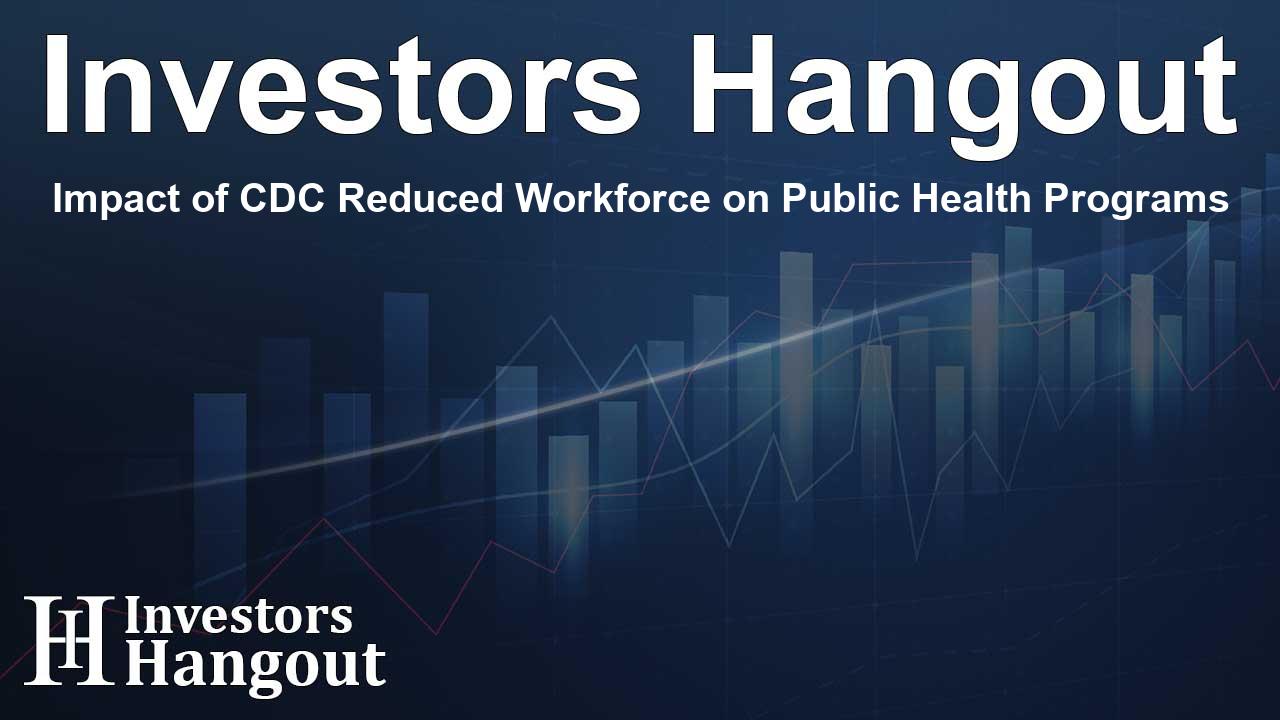Impact of CDC Reduced Workforce on Public Health Programs

CDC Layoffs Pose Serious Threat to Respiratory Health Initiatives
Recent reductions in force (RIFs) at the Centers for Disease Control and Prevention (CDC) raise significant concerns for public health. The Asthma and Allergy Foundation of America (AAFA) warns that such cuts jeopardize critical health programs essential for millions suffering from asthma and allergies. With nearly 28 million people in the U.S. diagnosed with asthma, and daily fatalities attributed to the disease, these layoffs could have devastating implications.
Critical Programs at Risk Due to Layoffs
The staffing cuts at the CDC are affecting multiple divisions, each vital to public health. One of the most impacted is the National Center for Environmental Health (NCEH). This center is pivotal in safeguarding against environmental hazards, such as air pollution and climate change. The elimination of the entire Division of Environmental Health Science and Practice (DEHSP) threatens the branches dedicated to asthma and air quality, crucial research, and community health initiatives.
Importance of the National Asthma Control Program
The National Asthma Control Program (NACP) plays a crucial role in educating communities, preventing asthma attacks, and conducting vital research. By collaborating with state health agencies to implement effective care models, NACP has achieved a remarkable drop in asthma-related mortality rates—over 45% between 1999 and 2018. Losing this program means state health departments might struggle to make progress in managing asthma, impacting countless lives.
Addressing Climate-Related Health Challenges
Another program under threat is the Climate and Health Program, which helps local health authorities tackle climate-related threats. With worsening air quality and increased pollen levels, this program is essential for those vulnerable to asthma and allergies. Eliminating these resources would reduce preparedness for climate-related health emergencies, leaving many communities at risk.
The Role of Tobacco Control Initiatives
The Office on Smoking and Health (OSH) is another key program facing cuts. This office leads efforts nationwide to mitigate tobacco use, considerably contributing to lung diseases and asthma. Without the support of OSH, initiatives aimed at preventing smoking, particularly among youth, will likely diminish, resulting in increased rates of respiratory illness.
Educational Support from the National Institute for Occupational Safety and Health
Moreover, the National Institute for Occupational Safety and Health (NIOSH) is crucial in preventing workplace-related respiratory conditions. The workforce reduction jeopardizes their efforts to research and provide guidelines aimed at health hazards in occupational settings, further complicating asthma management in the workplace.
Consequences of Inadequate Federal Support
As asthma rates continue to rise, the diminished federal backing for environmental health and tobacco cessation programs will undoubtedly lead to increased healthcare costs. States already battling high asthma prevalence may face further hardships, risking the health of individuals reliant on these essential health programs.
AAFA President and CEO Kenneth Mendez expressed deep concern, stating that the firings of CDC personnel alongside cuts to asthma initiatives represent a substantial threat to public health. Regions with high asthma rates, including Texas and Florida, could see increased emergency room visits, especially among lower-income populations, if expert resources dwindle.
In states like West Virginia and Kentucky, where asthma prevalence is notably high, the reduction in resources means less support for schools and healthcare providers managing this chronic condition. The absence of federal assistance could lead to more preventable emergencies, heightened medical expenses, and overall poorer health outcomes.
Call to Action for Public Health Leaders
AAFA is urging Congress and the Administration to prioritize restoring support for vital public health programs at the CDC. The health and well-being of Americans, particularly those battling asthma and allergies, depend on strong, adequately funded health initiatives. Only through concerted efforts can we ensure that individuals not only receive necessary care but also that future generations are protected from respiratory health crises.
Frequently Asked Questions
What are the impacts of CDC layoffs on asthma management?
The CDC layoffs threaten crucial asthma management programs, risking increased asthma episodes and related medical emergencies.
Why is the National Asthma Control Program essential?
The NACP significantly reduced asthma-related deaths and offers critical community healthcare support; its elimination weakens progress.
How does climate affect respiratory health?
Climate changes, such as increased pollution and pollen levels, can trigger asthma attacks and worsen respiratory conditions.
What role does tobacco cessation play in lung health?
Tobacco cessation efforts are vital in reducing lung diseases and preventing asthma exacerbations connected to smoking.
What can individuals do to advocate for asthma resources?
Individuals can contact local representatives, support public health initiatives, and educate themselves about asthma management.
About The Author
Contact Olivia Taylor privately here. Or send an email with ATTN: Olivia Taylor as the subject to contact@investorshangout.com.
About Investors Hangout
Investors Hangout is a leading online stock forum for financial discussion and learning, offering a wide range of free tools and resources. It draws in traders of all levels, who exchange market knowledge, investigate trading tactics, and keep an eye on industry developments in real time. Featuring financial articles, stock message boards, quotes, charts, company profiles, and live news updates. Through cooperative learning and a wealth of informational resources, it helps users from novices creating their first portfolios to experts honing their techniques. Join Investors Hangout today: https://investorshangout.com/
The content of this article is based on factual, publicly available information and does not represent legal, financial, or investment advice. Investors Hangout does not offer financial advice, and the author is not a licensed financial advisor. Consult a qualified advisor before making any financial or investment decisions based on this article. This article should not be considered advice to purchase, sell, or hold any securities or other investments. If any of the material provided here is inaccurate, please contact us for corrections.
